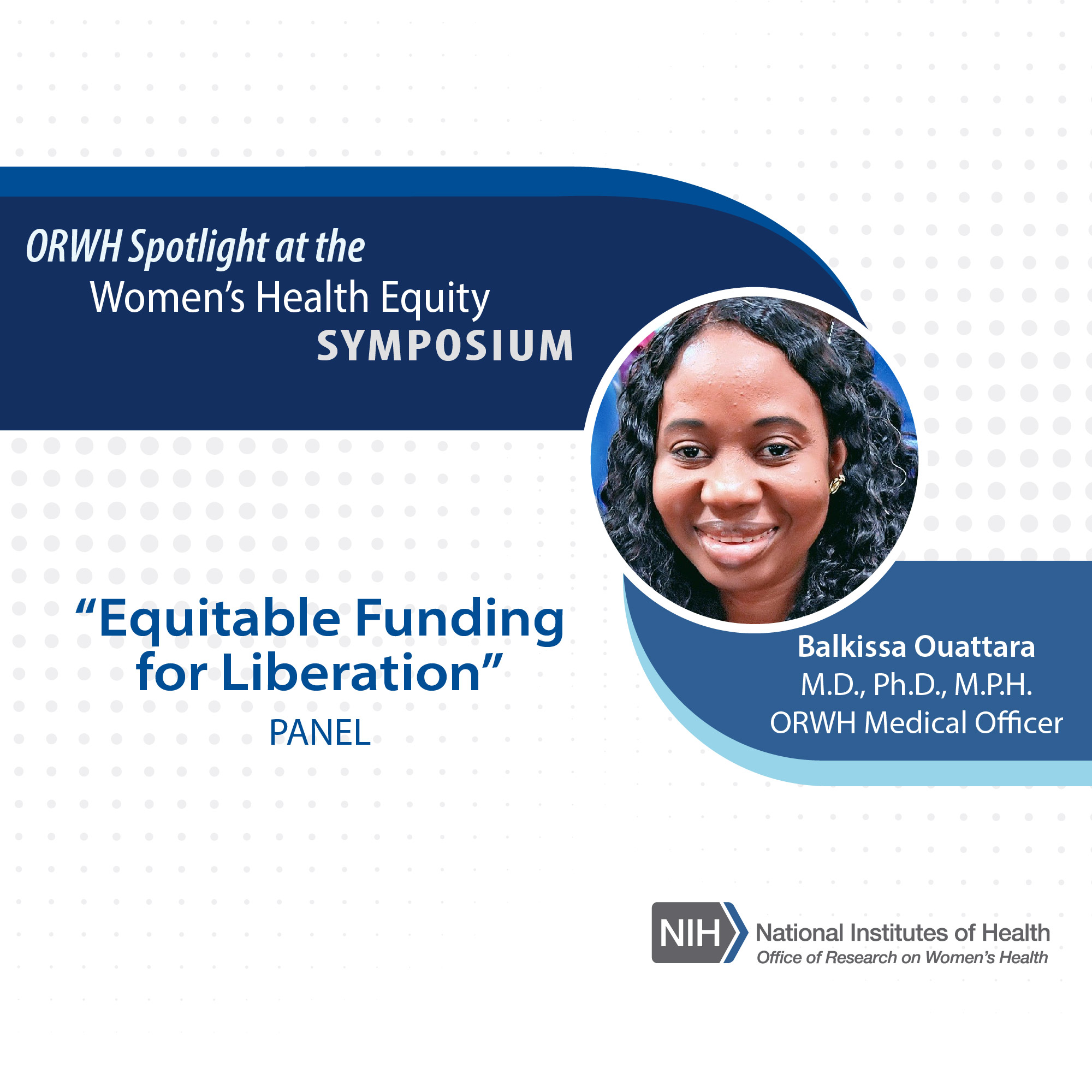
ORWH Medical Officer Balkissa Ouattara, M.D., Ph.D., M.P.H., represented ORWH at the University of Cincinnati’s Women's Health Equity Symposium December 5–6, 2024. The event aimed to foster interdisciplinary collaboration among researchers, clinicians, and community members while amplifying the voices of women who have been historically marginalized. By integrating biomedical research with sociological frameworks, the symposium sought to challenge systemic oppression in health care, develop innovative solutions, and create action teams for post-symposium initiatives that will focus on advancing health equity.
Dr. Ouattara joined the “Equitable Funding for Liberation” panel that discussed key questions surrounding equitable funding in women's health research. She emphasized that equitable funding plays a crucial role in empowering communities who have been marginalized by enabling research that reflects their unique experiences. This research, in turn, leads to data-driven interventions aimed at addressing health disparities. Equitable funding also ensures the inclusion of diverse voices in research to co-create solutions with affected communities, which is essential for advancing health equity.
Dr. Ouattara also highlighted the challenges of securing equitable funding for women’s health initiatives. One of the biggest obstacles is the finite nature of federal funding, which has many competing priorities. Additionally, there are historical data gaps in women’s health research, primarily due to the decades women were excluded from clinical research. Dr. Ouattara noted that ORWH was established specifically to address the historic underrepresentation of women in clinical studies and to advance research in women’s health.
Furthermore, Dr. Ouattara shared examples of how equitable funding has directly impacted health outcomes and increased access to care for populations who have been marginalized. She used the NIH Rapid Acceleration of Diagnostics Technology (RADx® Tech) for Maternal Health Challenge as an example, which accelerates the development of innovative technologies for point-of-care or home-based maternal health care in maternity care deserts. She also discussed NIH’s Helping to End Addiction Long-term® (HEAL) Initiative, which focuses on addressing the opioid crisis in rural and underserved communities and offers a model for how equitable funding can lead to positive change.
Dr. Ouattara presented several key NIH initiatives while discussing strategies that ensure funding structures are more inclusive and aligned with community needs. She touched on the Community Partnerships to Advance Science for Society (ComPASS) program, which funds 25 community-led health equity structural interventions that engage communities in research across the United States. She also mentioned the Implementing a Maternal health and PRegnancy Outcomes Vision for Everyone (IMPROVE) Connecting the Community for Maternal Health Challenge, which aimed to build research capacity in community-based organizations so that they could conduct maternal health research relevant to their populations.
The symposium also featured engaging discussions with the audience, which raised important points about more accessibility and inclusiveness in research funding; the need for more Black women grant reviewers to ensure diverse perspectives; and the importance of supporting researchers while they navigate NIH’s complex funding processes.
